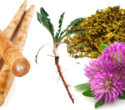Antiviral Herbs: From Traditional Use to Modern Science
Herbalism has been practiced for centuries, and many different cultures have used herbs to treat a variety of illnesses. While the use of antiviral herbs is not as well known as the use of antibacterial or antifungal herbs, there are a number of plants that have shown promise in laboratory studies. In this article, we will take a look at some of the most promising antiviral herbs, from both a traditional perspective and from modern scientific studies.
Garlic is one of the most well-known antiviral herbs
Garlic has been used medicinally for centuries, and modern science has confirmed its antiviral properties. In one study, garlic was shown to be effective against the human rhinovirus, which is responsible for the common cold. Other studies have shown that garlic can also be effective against other viruses, such as the herpes simplex virus (HSV) and the influenza virus.
Ginger is tasty and very versitile
Another popular antiviral herb is ginger. Ginger has been used in traditional medicine to treat a variety of illnesses, including colds, flu, and stomach upset. Ginger has also been shown to have antiviral properties in laboratory studies. One study found that ginger was effective against the HSV. Another study showed that ginger extract was able to reduce the replication of the human coronavirus, which can cause severe respiratory illness.
Echinacea is a popular immune herb
Echinacea is another popular herbal remedy, and it has been traditionally used to treat colds, flu, and other respiratory illnesses. Scientific research has shown that echinacea does have antiviral properties. One study found that echinacea was effective against the HSV. Another study showed that echinacea was able to reduce the replication of the human respiratory syncytial virus (RSV).
Elderberry jams, wines, and syrups to an effective and natural way to fight the flu
Elderberry has traditionally been used to treat influenza and colds, and scientific research has shown that it does have antiviral properties. One study found that elderberry extract was effective against the influenza virus. Another study showed that elderberry was able to reduce the replication of the human RSV.
These are just a few of the many antiviral herbs that are available. Healthline also has a wonderful article on some other well known herbs, that you may not have realised, also have antiviral properties!
If you are interested in trying herbal remedies, contact me here for a free 10-minute Discovery Call to find out how herbal medicine can help you.
Note: Herbal medicines can interact with other medications, and they can also have some side effects. It is important to work with a healthcare provider who understands herbal medicines, so that you can get the most benefit from them.
References available on request.




